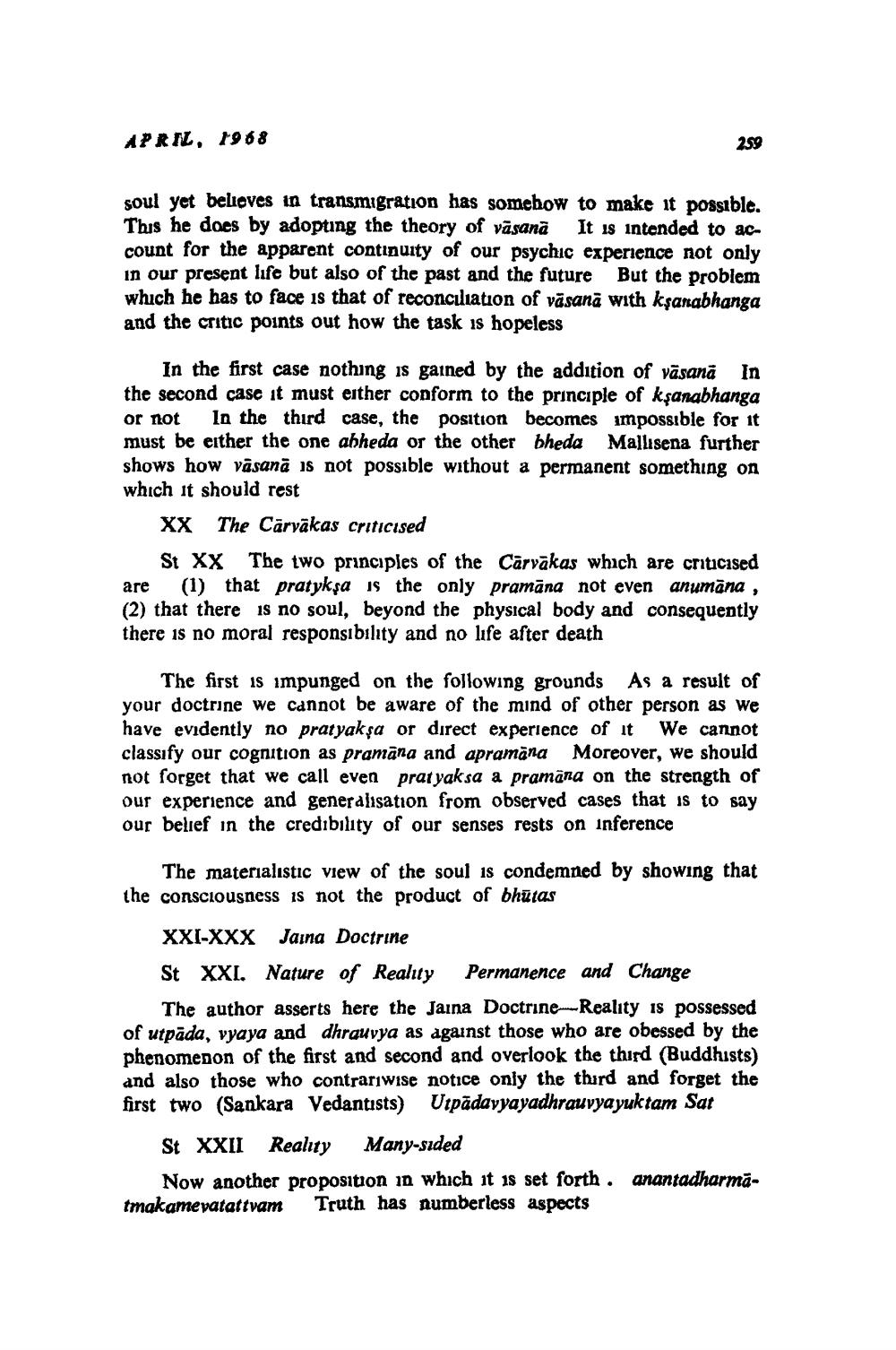________________
APRIL, 1968
259
soul yet believes in transmigration has somehow to make it possible. Thus he does by adopting the theory of vāsanā It is intended to account for the apparent continuity of our psychic experience not only in our present life but also of the past and the future But the problem which he has to face is that of reconciliation of vāsanā with kşanabhanga and the critic points out how the task is hopeless
In the first case nothing is gained by the addition of vāsanā In the second case it must erther conform to the principle of kşanabhanga or not in the third case, the position becomes impossible for it must be either the one abheda or the other bheda Mallisena further shows how vāsanā is not possible without a permanent something on which it should rest
XX The Cārvākas criticised
St XX The two principles of the Cārvākas which are criticised are (1) that pratykşa is the only pramāna not even anumāna , (2) that there is no soul, beyond the physical body and consequently there is no moral responsibility and no life after death
The first is impunged on the following grounds As a result of your doctrine we cannot be aware of the mind of other person as we have evidently no pratyakşa or direct experience of it We cannot classify our cognition as pramāna and apramana Moreover, we should not forget that we call even pratyak sa a pramana on the strength of our experience and generalisation from observed cases that is to say our belief in the credibility of our senses rests on inference
The materialistic view of the soul is condemned by showing that the consciousness is not the product of bhūtas
XXI-XXX Jaina Doctrine St XXI. Nature of Realty Permanence and Change
The author asserts here the Jaina Doctrine-Reality is possessed of utpäda, vyaya and dhrauvya as against those who are obessed by the phenomenon of the first and second and overlook the third (Buddhists) and also those who contrariwise notice only the third and forget the first two (Sankara Vedantists) Uupādavyayadhrauvya yuktam Sat
St XXII Reality Many-sided
Now another proposition in which it is set forth. anantadharmatmakamevatattvam Truth has numberless aspects




